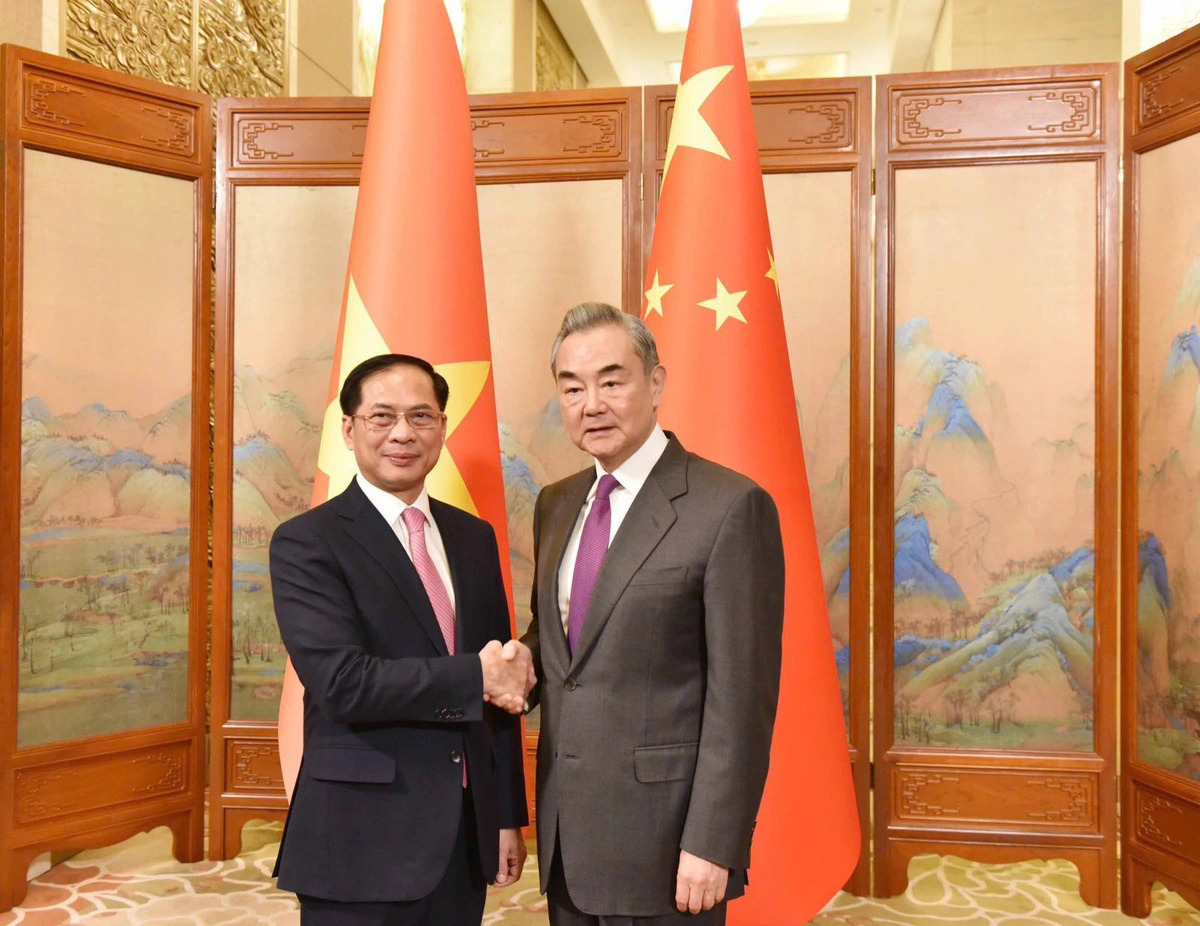Vietnam and China have agreed to join hands in constructing three key standard-gauge railway lines in northern Vietnam, with the aim of contributing to boosting multifaceted cooperation between the two countries.
Both sides exchanged the agreement on Tuesday during the 16th session of the Vietnam-China Steering Committee for Bilateral Cooperation, co-chaired by Vietnamese Deputy Prime Minister and Minister of Foreign Affairs Bui Thanh Son and Director of the Office of the Communist Party of China Central Committee’s Commission for Foreign Affairs and Minister of Foreign Affairs Wang Yi in Beijing.
Accordingly, the three standard-gauge rail systems include the Lao Cai-Hanoi-Hai Phong, Lang Son-Hanoi, and Mong Cai-Ha Long-Hai Phong routes in northern Vietnam.
These railway routes involve Hanoi, Hai Phong City, and the three provinces bordering China, including Lao Cai, Lang Son, and Quang Ninh.
The 380km Lao Cai-Hanoi-Hai Phong route is estimated to cost US$11.6 billion and will have passenger and cargo trains running at 160kph, according to the Vietnam News Agency.
Stretching about 156km long, the Hanoi-Lang Son line will be built at a cost of about $6 billion, while the speed for both passenger and cargo trains on this route will also be 160kph.
Meanwhile, the Mong Cai-Ha Long-Hai Phong is expected to stretch 187km and cost some $7 billion, with passenger and cargo trains operating at 160kph and 120kph, respectively.
All these railways are designed to use a track gauge of 1,435mm.
Deputy Minister Son highlighted the importance of building these rail systems to enhance railway connectivity between the two nations in the near future, noting that this would help deepen cooperation across various fields.
He also proposed restoring the international intermodal rail transport route between the two countries and improving access to flight slots for Vietnamese airlines.
Deputy PM Son stressed the need to attract high-quality investments from China, ensure the effective implementation of China-funded projects, and foster collaboration in key areas such as agriculture, environmental protection, finance, science and technology, culture, and education and training.
Minister Wang expressed strong support for Deputy PM Son’s proposals and reaffirmed China’s commitment to fostering mutually beneficial cooperation with Vietnam across all sectors.
Wang stated that China is prepared to work with Vietnam to resolve challenges affecting certain Chinese-invested projects in the country.
He also underlined China's intention to encourage its enterprises to invest in Vietnam, aligning with the strengths and needs of both nations.
During the session, the two sides addressed a wide range of key issues, including trade, investment, defense, security, and maritime cooperation, aiming to elevate the Vietnam-China comprehensive strategic cooperative partnership to new heights.
Like us on Facebook or follow us on Twitter to get the latest news about Vietnam!

















































